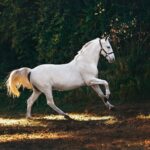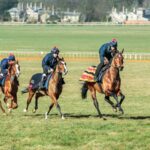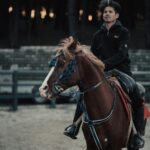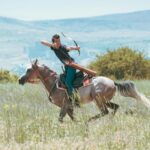The mental fortitude of a performance horse is just as crucial as its physical capabilities. When equine athletes face challenging situations – from the intensity of competition to unfamiliar environments – their psychological resilience determines how effectively they can perform under pressure. Mental resilience in horses isn’t innate; it’s carefully developed through consistent training, trust-building, and deliberate exposure to various stimuli. This comprehensive guide explores how trainers, riders, and caretakers can cultivate psychological strength in their equine partners, creating horses that remain calm, focused, and responsive even in high-stress situations. By understanding the foundations of equine psychology and implementing targeted techniques, you can transform even sensitive horses into mentally tough performers ready to excel in any arena.
Understanding Equine Psychology: The Foundation of Mental Resilience
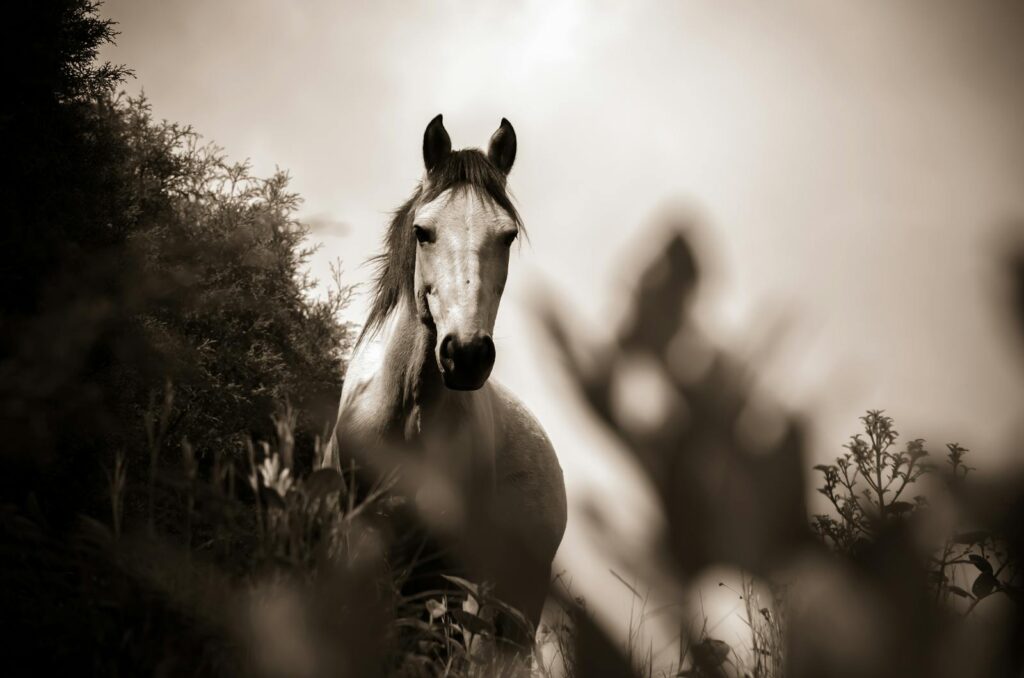
Horses are prey animals whose natural instincts prioritize survival through flight rather than fight responses. This evolutionary background means that horses are naturally vigilant and reactive to potential threats, a characteristic that can manifest as spooking, bolting, or freezing when faced with stressful stimuli. Understanding this fundamental aspect of equine psychology helps explain why some performance horses struggle with new environments, strange objects, or high-pressure situations. Beyond their prey mentality, horses are also herd animals who rely on clear leadership and consistent social structures to feel secure. When a rider or trainer establishes themselves as a trustworthy leader, the horse gains confidence and becomes more willing to face challenges rather than default to fear responses. This psychological foundation explains why relationship-building forms the cornerstone of developing mental resilience in performance horses.
Assessing Your Horse’s Current Mental State
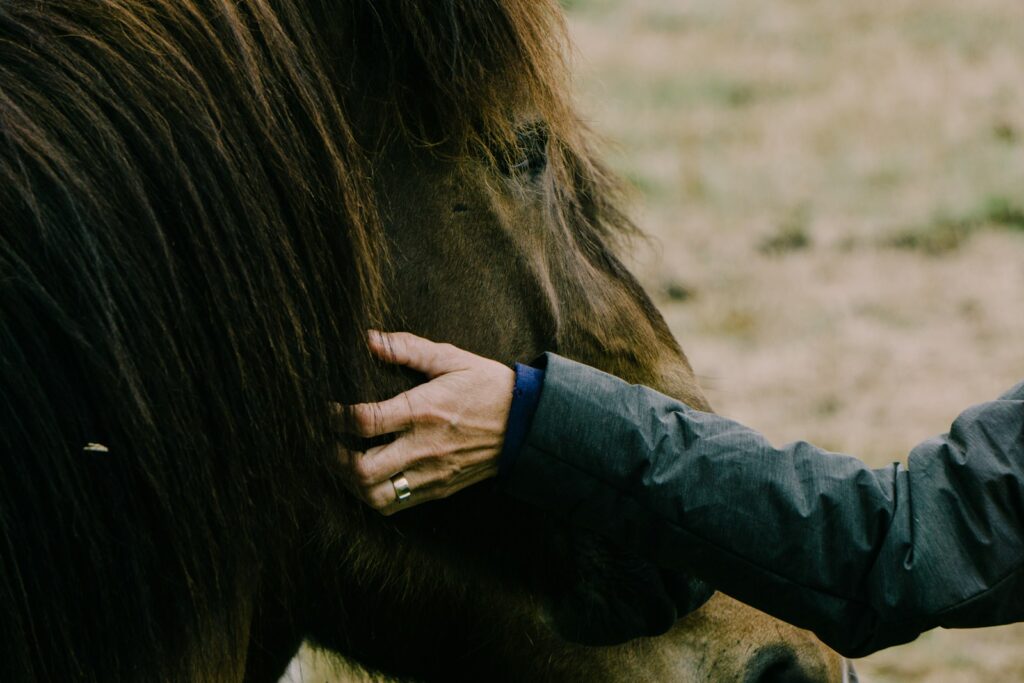
Before implementing a mental resilience training program, it’s essential to accurately evaluate your horse’s current psychological strengths and weaknesses. Observe how your horse responds to various stressors – does he spook consistently at certain objects, become anxious in confined spaces, or struggle with separation from other horses? Document specific triggers and reactions, noting both the intensity and duration of stress responses. Pay particular attention to subtle signs of mental distress that might precede more obvious reactions, such as elevated head carriage, tail swishing, ear pinning, or changes in breathing patterns. A comprehensive assessment should also consider your horse’s baseline temperament, previous training experiences, and any history of trauma that might influence his capacity for handling stress. This detailed evaluation provides the necessary information to create a tailored resilience-building program that addresses your horse’s particular psychological needs rather than applying generic techniques.
Building a Foundation of Trust and Security
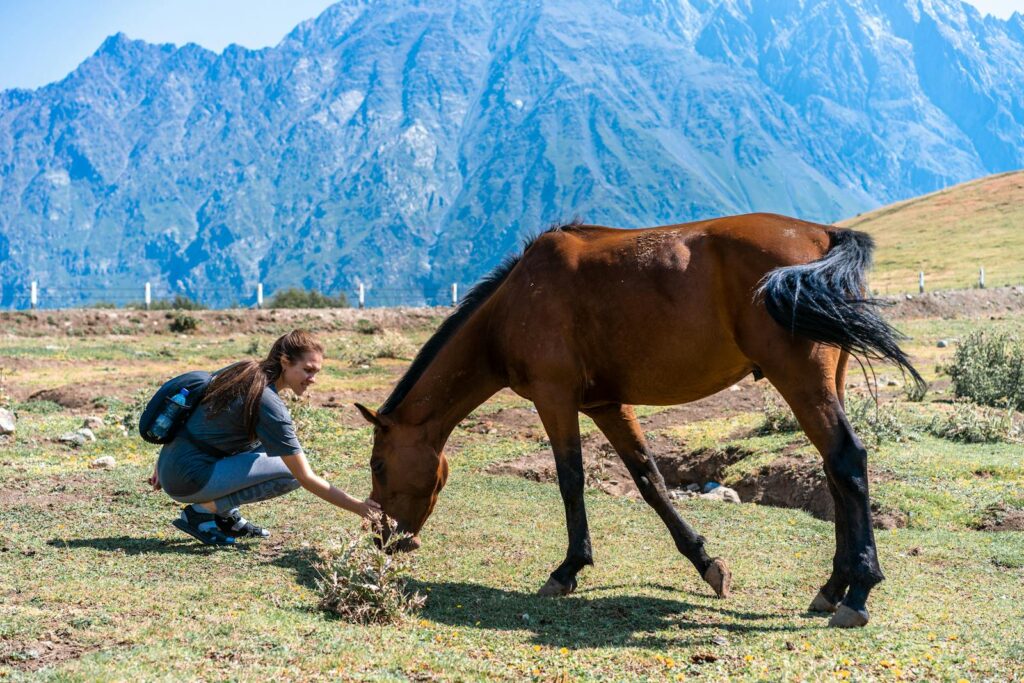
Mental resilience develops most effectively within the context of a secure horse-human relationship based on mutual trust and clear communication. Spend quality ground time with your horse through activities like grooming, hand-grazing, and in-hand exercises that strengthen your bond without the pressures of performance. Establish yourself as a consistent leader by maintaining clear boundaries, providing predictable routines, and responding appropriately to both desirable and undesirable behaviors. Incorporate positive reinforcement techniques that reward calmness, attentiveness, and willing responses, helping your horse associate your presence with safety and comfort. Remember that trust-building isn’t a preliminary phase but an ongoing process that continues throughout your relationship with your performance horse. A strong foundation of trust gives your horse the confidence to face challenges with you rather than reacting with fear or resistance when confronted with stressful situations.
Progressive Desensitization Techniques
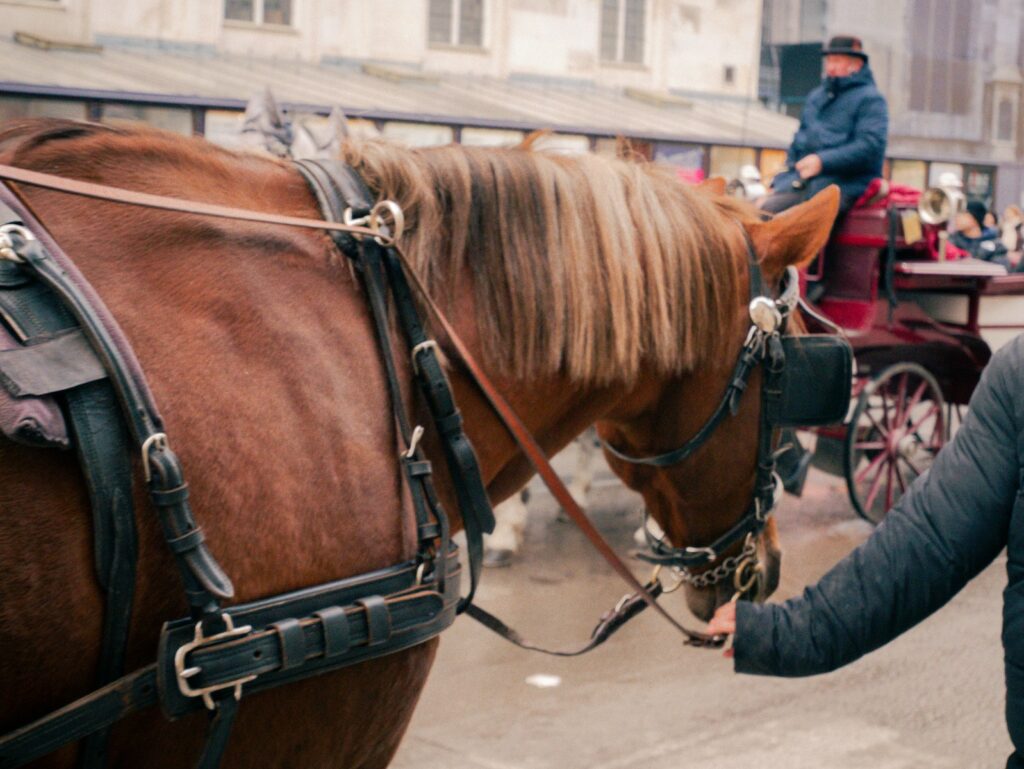
Systematic desensitization represents one of the most effective methods for building mental resilience in performance horses. This approach involves gradually introducing potentially frightening stimuli while keeping the horse below its stress threshold, allowing the animal to process new experiences without triggering fight-or-flight responses. Begin with low-intensity versions of challenging stimuli – perhaps a flag moving slowly at a distance before introducing it closer or with more movement – and reward calm acceptance before increasing difficulty. The key to effective desensitization lies in recognizing the subtle signs that indicate your horse is approaching his stress threshold and adjusting the training accordingly to prevent overwhelming him. Apply this progressive approach to various stimuli relevant to your discipline, such as flapping objects for trail horses, crowd noises for show horses, or starting gate procedures for racehorses. Consistent, thoughtful desensitization sessions build neural pathways that help your horse process novel stimuli with increasing calmness and self-control.
Teaching Self-Regulation Through Pressure and Release
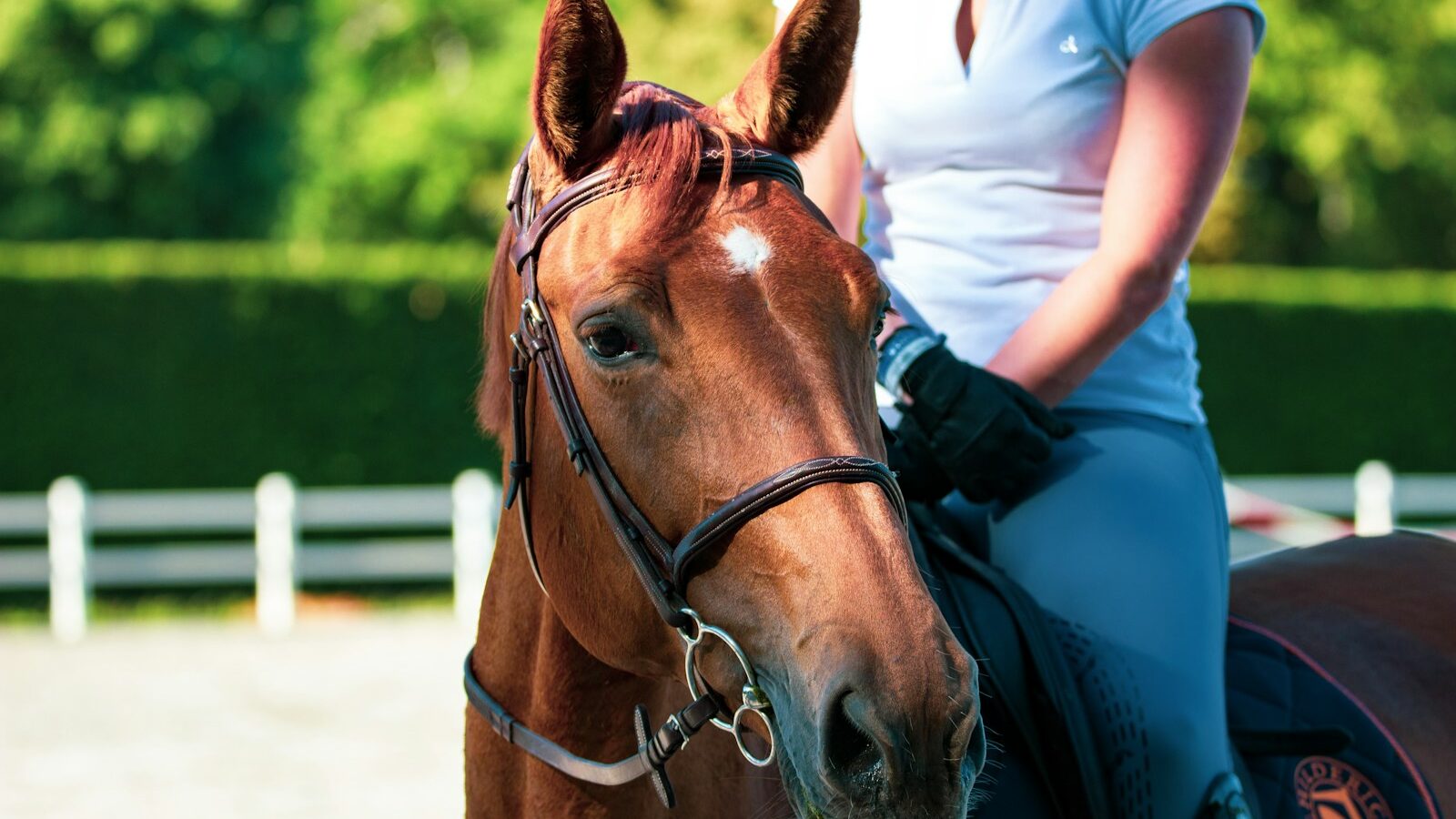
Mental resilience in performance horses involves developing their capacity for emotional self-regulation – the ability to return to a calm state after experiencing stress. The pressure-and-release training method provides an effective framework for teaching horses this crucial skill. Begin by applying gentle pressure (such as a rein cue or leg aid) and immediately releasing when the horse shows the desired response, even if the response is minimal at first. This technique teaches horses that they can control the removal of pressure through appropriate responses rather than through resistance or emotional reactions. Gradually increase the duration and intensity of pressure while maintaining the same clear release for correct responses, helping your horse build tolerance for discomfort without mental deterioration. As your horse begins to understand this communication system, you’ll notice improved ability to “reset” mentally after challenging moments in training or competition. This self-regulatory capacity proves invaluable during high-pressure situations where emotional control directly impacts performance.
Creating Confidence Through Incremental Challenges
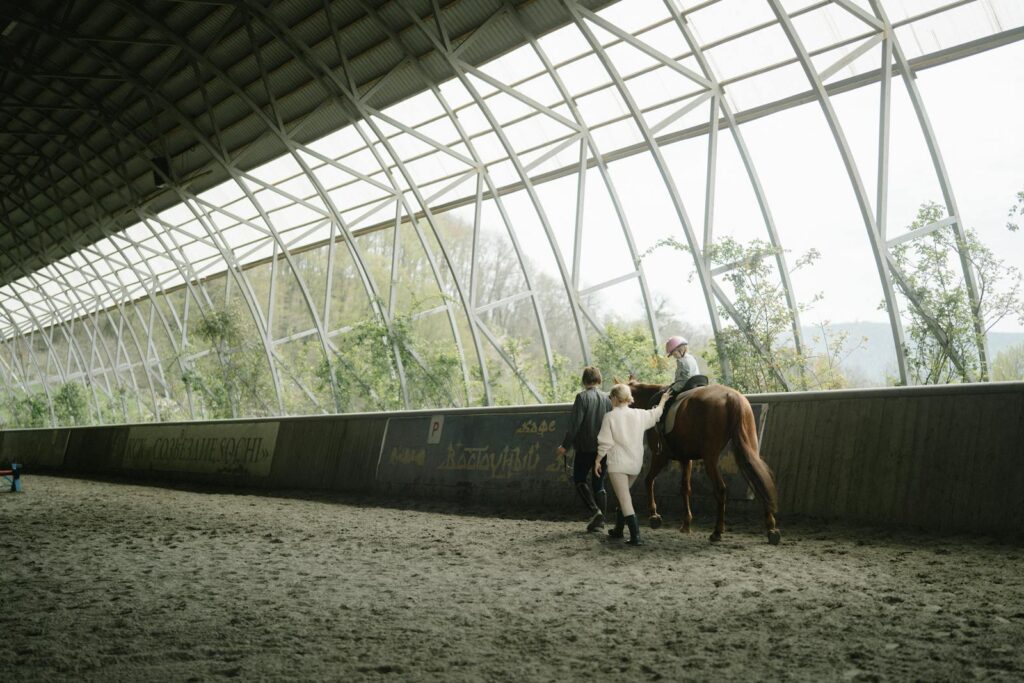
Mental resilience develops when horses successfully navigate increasingly difficult challenges within a supportive framework. Design training sessions that incorporate progressive challenges specifically tailored to your horse’s current capabilities and your performance goals. Start with exercises your horse can confidently complete before introducing small increases in difficulty that stretch his comfort zone without overwhelming him. For example, if training a jumper, begin with ground poles, move to small crossrails, and gradually increase height and complexity as confidence grows. Celebrate small victories and provide supportive guidance through moments of uncertainty, showing your horse that he can trust both you and his own abilities when facing challenges. This step-by-step approach builds what psychologists call “mastery experiences” – successful outcomes that strengthen the horse’s belief in his capacity to handle novel situations. Over time, these accumulated experiences create a mentally resilient horse who approaches new challenges with confidence rather than anxiety.
Implementing Stress Inoculation Training
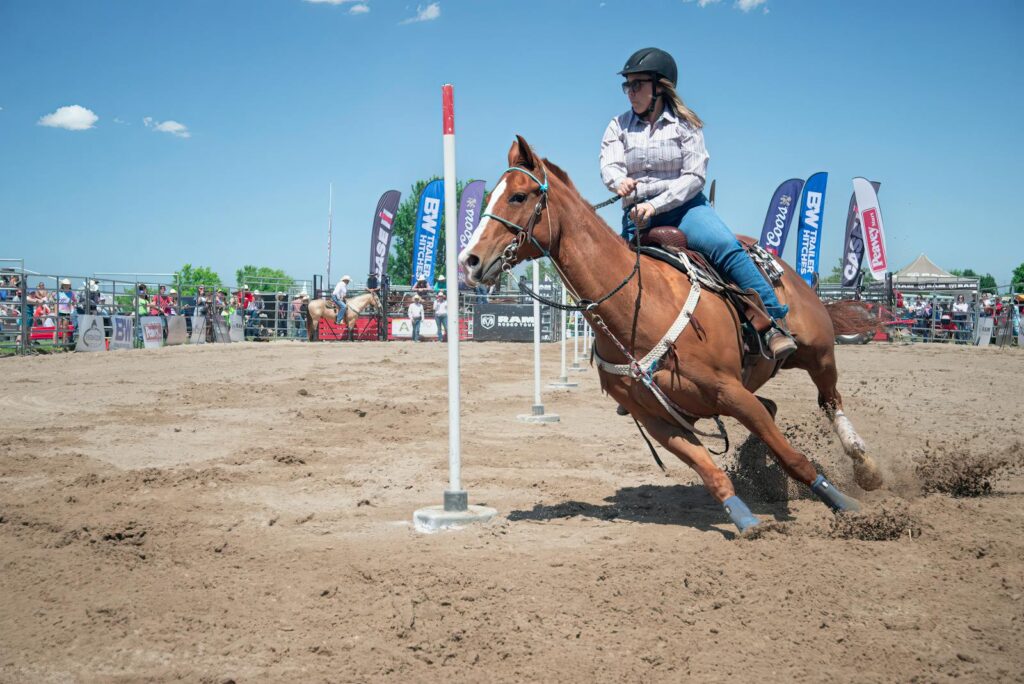
Stress inoculation training exposes horses to controlled amounts of stress in order to build their psychological immunity to pressure situations. This technique differs from desensitization in that it deliberately introduces mild stressors rather than merely habituating the horse to specific stimuli. Begin by identifying performance-relevant stressors your horse might encounter – perhaps time pressure, environmental distractions, or performance expectations – and recreate milder versions during training sessions. Gradually increase the intensity of these stressors while teaching coping mechanisms such as focusing on familiar cues or responding to relaxation signals from the rider. Monitor your horse’s responses carefully, ensuring that stress levels remain productive rather than overwhelming, which might damage confidence rather than build resilience. This methodical exposure to increasing pressure prepares your horse to maintain focus and composure during actual competitions or high-stakes performances. Effective stress inoculation transforms potentially overwhelming situations into manageable challenges that your horse knows how to navigate with confidence.
Environmental Enrichment and Mental Stimulation
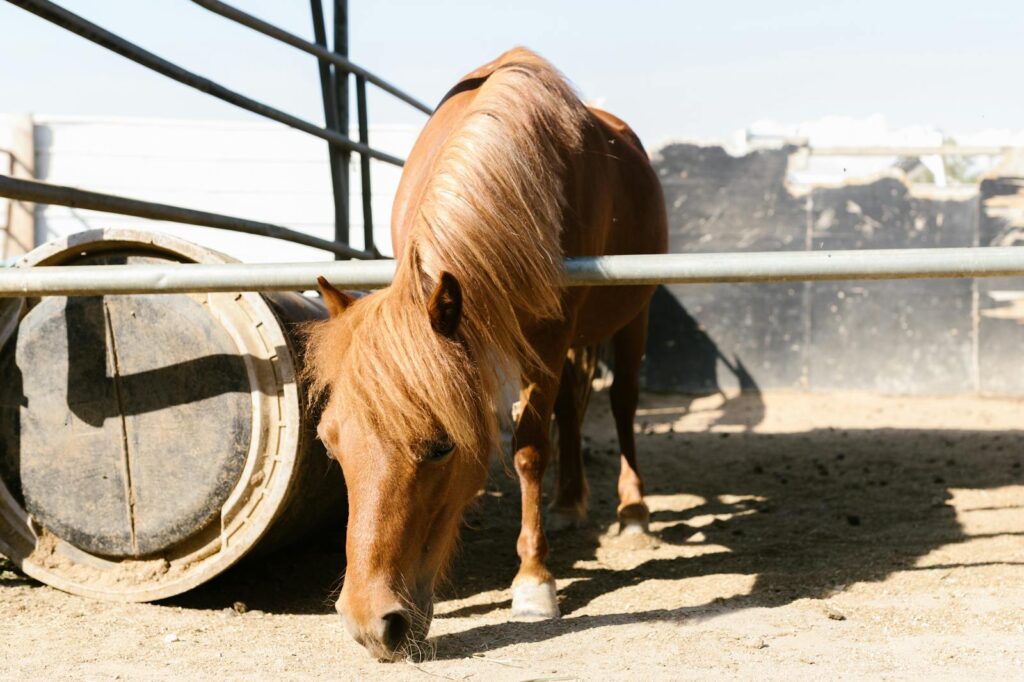
Mental resilience in performance horses benefits significantly from living conditions that provide appropriate cognitive challenges and environmental enrichment. Horses evolved to process complex environments while making decisions about potential threats, food sources, and social interactions – capabilities that can atrophy in overly simplified modern stabling situations. Incorporate enrichment opportunities such as puzzle feeders that require problem-solving, varying turnout areas that present different terrain challenges, or rotational grazing systems that mimic natural foraging patterns. Create opportunities for appropriate social interaction with compatible horses, as herd dynamics provide natural mental stimulation and security. Consider implementing liberty or free-schooling sessions where horses make decisions without constant human direction, developing independent problem-solving abilities. These enrichment practices develop cognitive flexibility and adaptive capabilities that transfer directly to performance situations where horses must process complex environments while remaining focused on their riders’ cues.
Cross-Training for Mental Flexibility
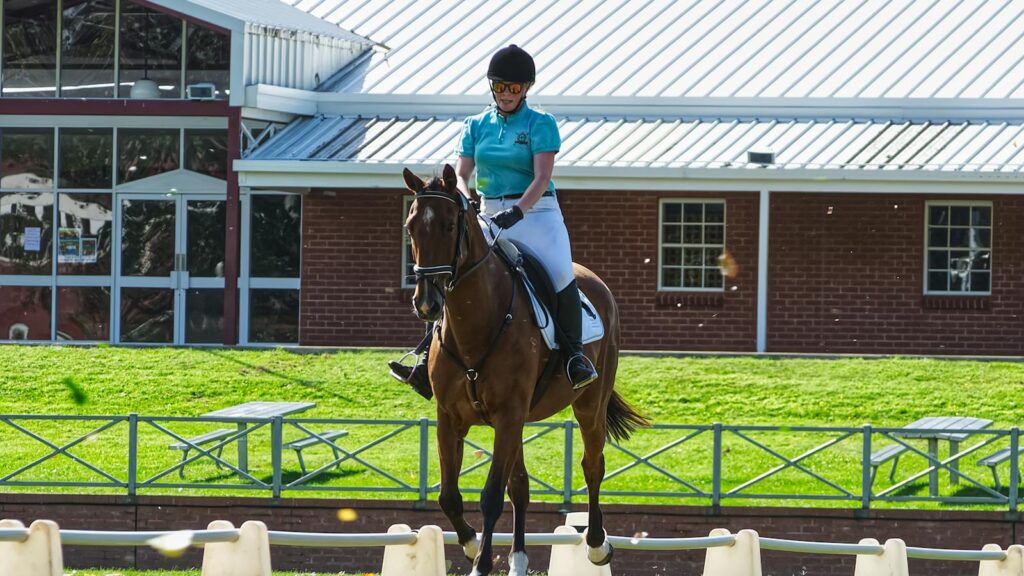
Incorporating varied disciplines and activities into your horse’s training regimen builds mental flexibility – a key component of resilience. When horses become accustomed to only one type of work, they often struggle to adapt when faced with unexpected variations or new challenges in their primary discipline. Introduce cross-training elements appropriate to your horse’s physical capabilities – perhaps trail riding for a dressage horse, cattle work for a jumper, or ground poles for a western pleasure mount. These varied activities engage different mental processes and prevent the psychological staleness that can develop with repetitive training routines. Cross-training also creates multiple contexts in which your horse can experience success, broadening his understanding of what constitutes “correct” behavior beyond the narrow parameters of a single discipline. The resulting mental adaptability allows performance horses to maintain composure and focus even when competition conditions differ from their training environments, a crucial aspect of competition success.
Recovery Protocols: The Importance of Mental Rest
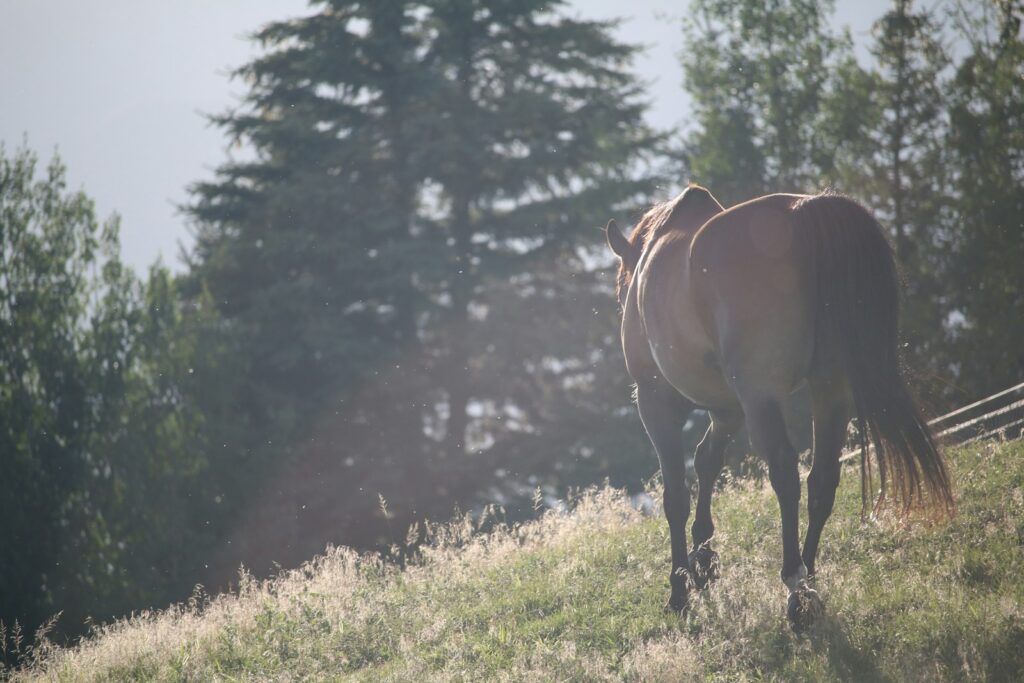
Mental resilience in performance horses depends not only on challenge but also on appropriate recovery periods that allow for psychological processing and integration. Design your training schedule to include dedicated mental recovery days following particularly challenging sessions or competitions, allowing your horse’s nervous system to reset fully. During these recovery periods, engage in low-pressure, enjoyable activities that maintain your connection without introducing new stressors or performance expectations. Pay attention to signs that your horse may need additional mental recovery time, such as increased reactivity, unusual resistance, or decreased enthusiasm for work. Some horses benefit from complete rest days with turnout and minimal human interaction, while others maintain better mental balance with light, familiar work that provides stress-free structure. Just as physical conditioning requires rest periods for adaptation and strengthening, mental resilience develops most effectively when challenging experiences are balanced with appropriate recovery protocols.
Nutrition and Supplements for Cognitive Support
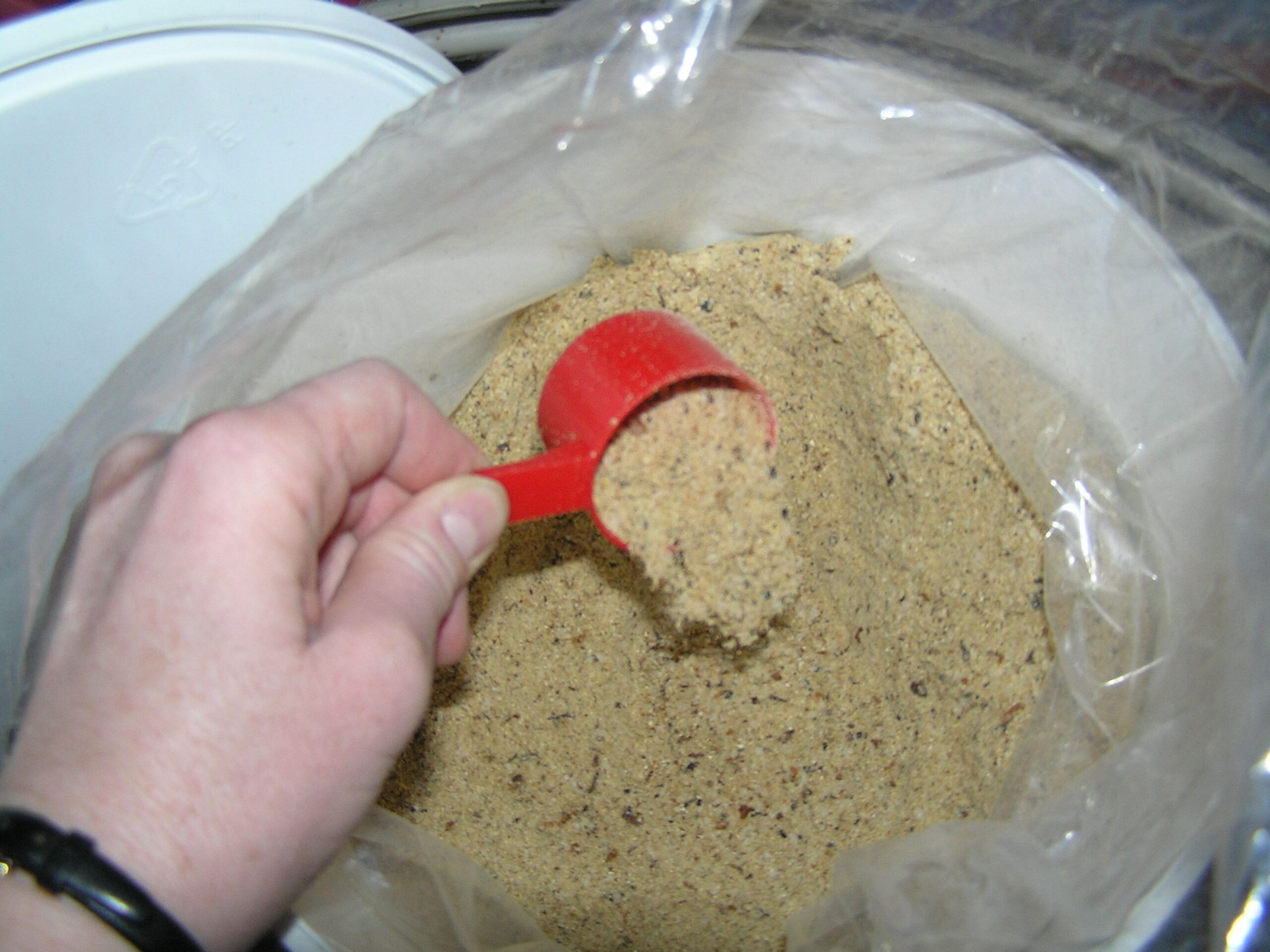
The biochemical foundations of equine mental functioning directly impact a horse’s capacity for resilience under pressure. Ensure your performance horse receives complete nutrition that supports optimal brain function, including adequate omega-3 fatty acids that contribute to neural health and appropriate B-vitamin levels that support normal neurotransmitter production. Consider that certain feeding practices, such as high-sugar or high-starch diets, may contribute to heightened reactivity or decreased focus in sensitive individuals due to blood sugar fluctuations and their impact on brain function. For horses facing particularly high stress levels, consult with your veterinarian about evidence-based calming supplements containing ingredients like magnesium, L-theanine, or specific herbal preparations with demonstrated effects on equine anxiety. While nutrition cannot replace proper training for mental resilience, it provides the physiological foundation that enables your horse’s brain to function optimally during stressful situations. Remember that any supplement approach should be implemented as part of a comprehensive management and training program rather than as a quick fix for behavioral issues.
Pre-Competition Preparation Strategies
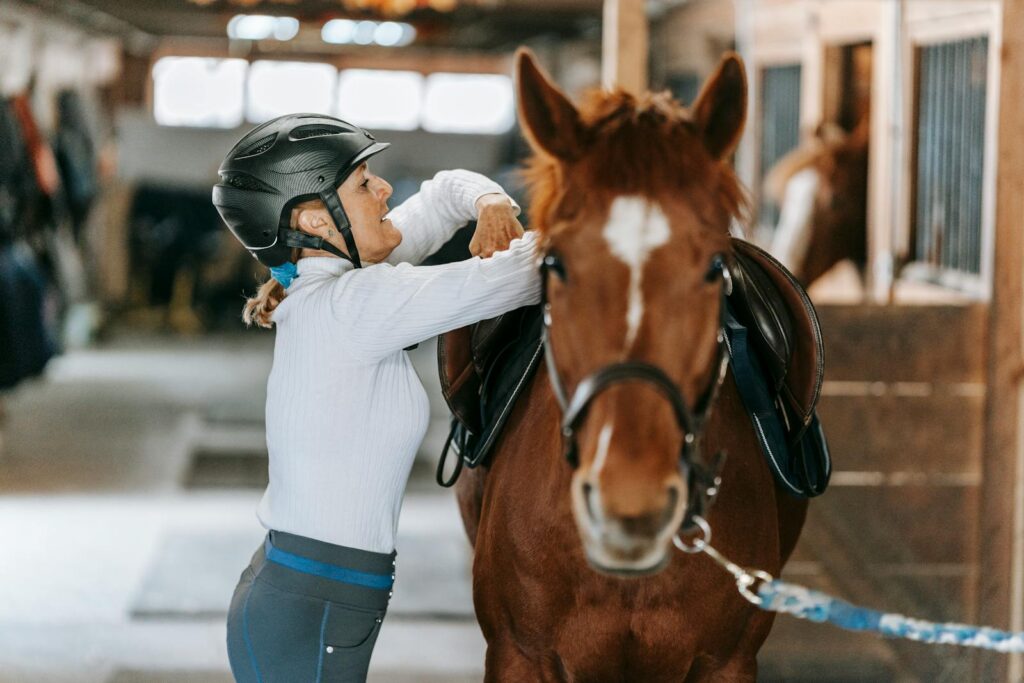
Mental resilience during competition depends significantly on specific preparatory routines that establish psychological readiness. Develop a consistent pre-competition protocol that helps your horse transition from everyday mindset to performance mindset through familiar patterns and cues. This might include a specific grooming routine, a particular order of tack application, or a warm-up sequence that has become associated with focused work rather than relaxed training. Pay special attention to your own mental state during this preparation phase, as horses readily detect and respond to their handlers’ tension or confidence through subtle body language cues. Create strategies for helping your horse adapt to competition environments, such as arriving with ample time for familiarization or including a companion horse for social security during initial exposure to new venues. When consistently implemented, these preparation strategies create psychological anchors that help your horse maintain mental composure even in high-pressure performance situations.
Addressing Setbacks and Rebuilding Confidence
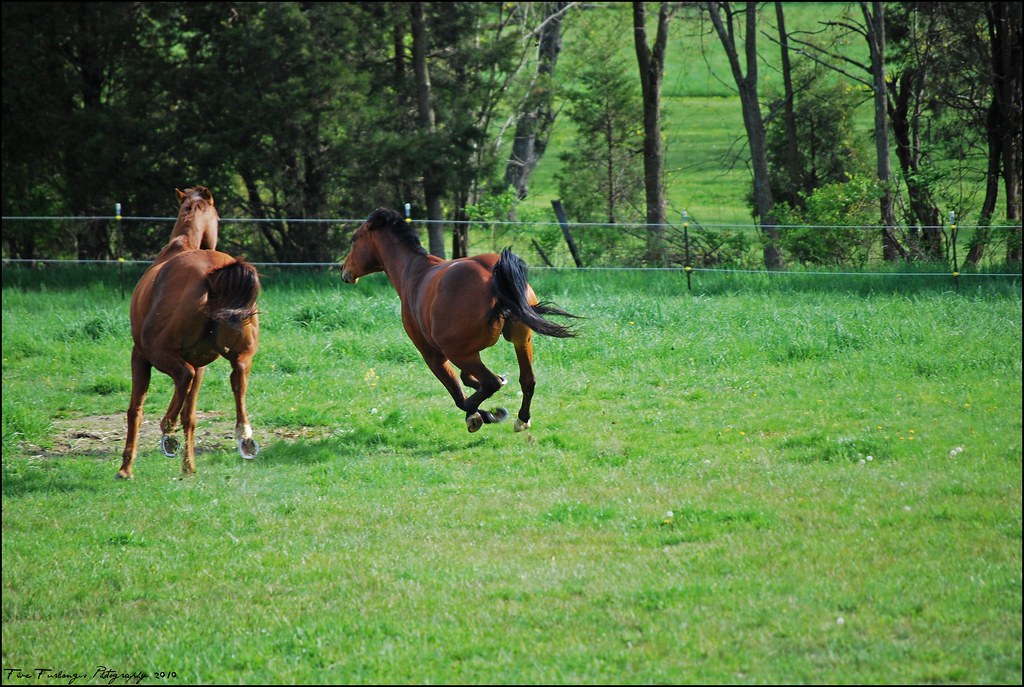
Even the most carefully developed mental resilience can be temporarily compromised by traumatic experiences, training setbacks, or competition failures. When your horse experiences a confidence-damaging event, implement a systematic rehabilitation approach rather than forcing him to “push through” the resulting anxiety. Begin by returning to familiar, confidence-building exercises well below the threshold where stress appears, reestablishing a foundation of success experiences before gradually reintroducing challenging elements. Break down problematic scenarios into their component parts, addressing each element separately before recombining them into the complete situation. Throughout this rebuilding process, maintain heightened awareness of your horse’s subtle stress signals to avoid pushing too far too quickly, which can further damage fragile confidence. Remember that rebuilding mental resilience often requires more time and patience than the initial training process, as you must overcome established negative associations rather than simply creating new neural pathways. With consistent, compassionate support, most horses can recover from setbacks to achieve even greater mental strength based on their expanded range of coping experiences.
Conclusion: The Ongoing Journey of Building Equine Mental Resilience
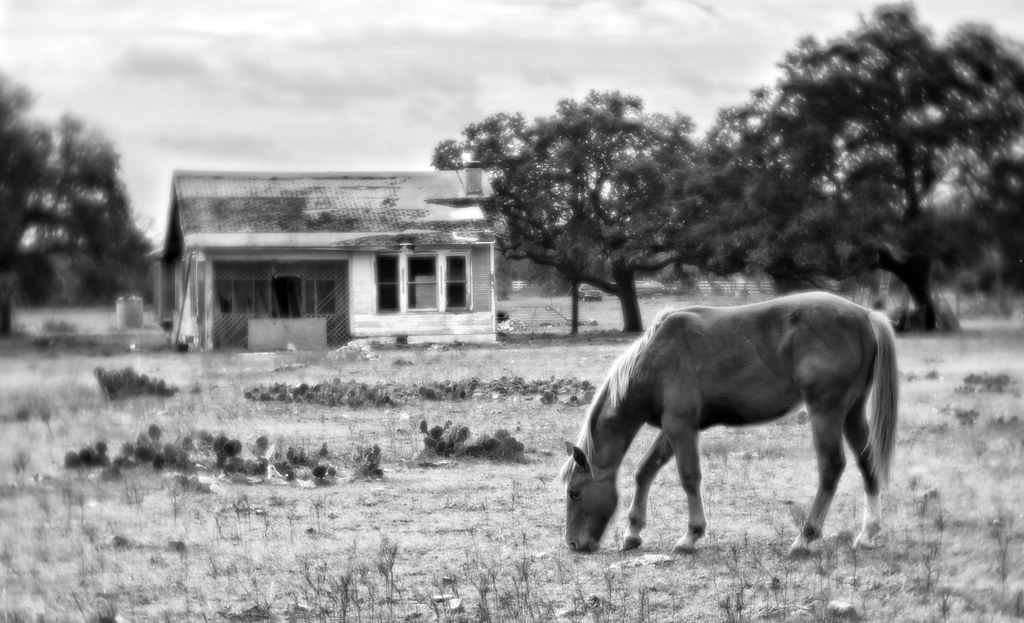
Developing mental resilience in performance horses represents an ongoing process rather than a finite achievement. The techniques described in this guide – from trust-building and desensitization to stress inoculation and recovery protocols – work together to create equine athletes capable of maintaining focus, adaptability, and emotional regulation even under significant pressure. Remember that each horse brings unique temperament, experiences, and learning styles to this process, requiring thoughtful customization of your approach. The investment in your horse’s psychological development yields dividends not only in competitive success but also in the deeply satisfying partnership that emerges when a horse performs with confident engagement rather than tension or fear. By committing to this holistic development approach, you create not just a successful performer but a mentally healthy equine partner who thrives on the challenges of athletic endeavors.


